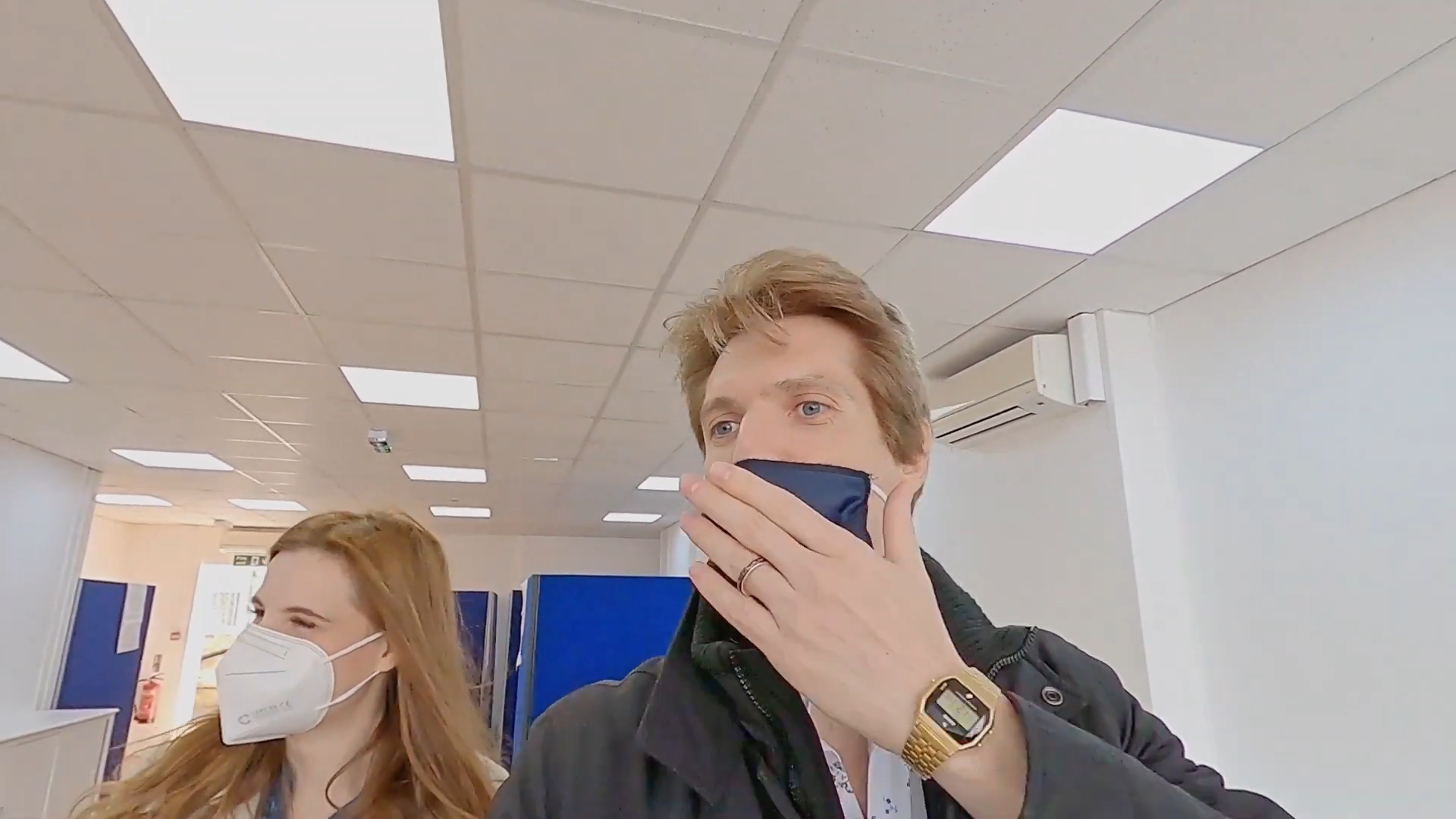
Thu, 31 October 2024 - By Marco Biagioli and Erica Melargo
In a wide-ranging conversation, Dr. Konstantin Petridis, a psychology and psychometrics expert, explores relationships, self-awareness, emotional intelligence, and the nature of mental health. His research delves into how psychometrics, a discipline focused on measuring psychological traits, informs our understanding of ourselves and others. Dr. Petridis’ insights highlight the importance of self-reflection, the challenges in achieving self-awareness, and the role that emotional intelligence plays in fostering healthy relationships.
Emotional Fluidity and Mental Health
Dr. Petridis begins by emphasizing the significance of emotional fluidity. He explains that mental health relies on allowing emotions to emerge without censorship or judgment. Bottling up anger, fear, or other emotions, or trying to cling to only “positive” emotions, leads to inner conflict. Mental health, according to Dr. Petridis, thrives when individuals let emotions flow organically, allowing each emotion to serve its natural function. Suppression of negative emotions can create an internal struggle, reducing overall emotional health and peace.
Self-Awareness as the Core of Healthy Relationships
Self-awareness plays a critical role in forming and sustaining relationships. Before entering into any relationship, Dr. Petridis advises individuals to engage in self-reflection to recognize any existing personal issues that may cloud their judgment. Often, individuals seek relationships to escape personal problems instead of addressing them directly. To cultivate a meaningful connection, he suggests that individuals should not only focus on compatibility but also evaluate their own readiness to engage in a healthy partnership.
Measuring Compatibility in Relationships
Dr. Petridis explains that psychometrics can help measure compatibility in relationships by offering tools that assess emotional profiles and relationship satisfaction. His own work includes a compatibility report designed to evaluate whether two individuals—whether romantic partners, colleagues, or mentors and mentees—are emotionally compatible. These tools, he stresses, are meant to enhance self-awareness and understanding in relationships, rather than as definitive guides. He encourages people to use such tools as starting points, especially in new relationships, allowing them to build awareness and recognize any potential patterns of incompatibility.
Family Dynamics and Narcissism
The conversation also touches on family dynamics and the development of personality traits. Dr. Petridis observes that while family environments can shape individuals, they do not dictate who they ultimately become. He cautions against blaming family circumstances for personal issues in adulthood, describing this tendency as a deflection of responsibility—a common narcissistic trait. Narcissism, characterized by a tendency to avoid accountability and shift blame onto others, can be measured through psychometrics. Such traits, he asserts, reflect an unwillingness to address personal shortcomings and can inhibit genuine self-growth.
Psychobionomy: A Holistic Theory of Life and Emotional Intelligence
At the core of Dr. Petridis’ research is a theory he calls “psychobionomy,” which provides a comprehensive framework for understanding life and human behavior. This theory underpins his work on emotional intelligence, an essential aspect of mental health. By understanding one’s emotional landscape, individuals can better navigate personal and professional relationships. Dr. Petridis has developed a Trait Emotional Intelligence Questionnaire (TEIQ) that helps individuals map their emotional world, offering insights into behaviors like narcissism, anxiety, and relationship dynamics. Rather than specializing in one area, he sees emotions as a universal gateway to understanding human nature across diverse fields.
Self-Awareness as a Lifelong Process
Self-awareness, Dr. Petridis argues, often emerges through life’s challenges and suffering. It is through these experiences that individuals begin to ask essential questions: “Who am I?” and “What is my purpose?” When these questions are genuine, he explains, they drive individuals toward self-reflection and, ultimately, greater personal understanding. While techniques and tools can aid in this journey, true self-awareness must be driven by a deep, personal desire to understand one’s own existence. Psychometric tools can guide the early stages of this journey, but real growth comes when individuals internalize and act on these realizations.
Psychometrics in Team Dynamics and Career Choices
Beyond personal relationships, Dr. Petridis’ work also extends to organizational settings, where psychometrics can assess team compatibility and individual career suitability. Team compatibility, he notes, benefits from a certain level of similarity in emotional make-up, which fosters cohesion and reduces friction. His research into career orientation reveals that career choices often reflect underlying emotional needs, and finding a career that aligns with one’s emotional strengths and values is key to satisfaction. His approach advocates for introspection in career selection, encouraging people to pursue roles that fulfill them personally rather than just professionally.
Final Thoughts on Excellence and Self-Growth
Throughout the conversation, Dr. Petridis returns to the concept of excellence as a guiding principle. He encourages individuals to focus on self-growth, avoid shortcuts, and cultivate excellence in all aspects of life. Rather than perfectionism, which is externally driven, he views excellence as a self-fulfilling pursuit that enhances both personal and professional life. For Dr. Petridis, the path to excellence is not about attaining specific outcomes but about the process of continual self-improvement and self-expression.
Dr. Konstantin Petridis’ insights provide a unique blend of scientific measurement and philosophical understanding, offering a roadmap to emotional intelligence, self-awareness, and personal fulfillment. His work illustrates that relationships—whether personal or professional—benefit from introspection and that self-awareness is not a one-time achievement but a lifelong journey. Through psychobionomy, Dr. Petridis encourages individuals to seek harmony within themselves, using psychometrics not just as diagnostic tools but as guides for growth and deeper understanding.
































